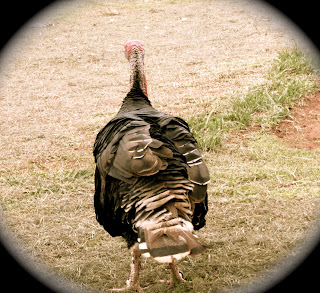All Good Things Come to an End......
After weeks of interviewing and memos, we decided to take a
short break and join a group of 16 students and 3 staff from the University of Minnesota
who stayed at Lira Integrated School during 2 weeks for a study abroad class. A
trip to Murchison Falls National Park was organized for them when their work in
Lira was over. Tagging along with them on the safari was a much needed escape from
a now-familiar environment and venturing into the wilderness was the perfect
solution. We were lucky to make new friends and share a unique experience altogether.
For a lot of us it was our first African safari experience. It was glorious to
see so many animals in their natural habitat. We saw giraffes, elephants, water buffaloes, hippos, monkeys, various kinds of birds, alligators, warthogs,
antelopes, etc. On our 3 day trip, we managed to include a couple of game
drives, a boat ride on the Nile, a hike up to the Falls, craft shopping, and
some eco-tourism.
| Murchison Falls |
The MN group headed towards Kampala for their flight back and
we took an interesting public ride back to Lira. After a couple of hours of
dirt road driving, with frequent stopping, a vehicle-swap mid- journey, and
being squished in a small van for about 4 hours, we were in Lira….ahhh Home
Sweet Home!!
Our sense of relief on being back to Lira safely ended pretty
soon. It was crunch time as soon as we returned, as we only had a week to
finish our analysis and submit our first draft. It was an interesting process
because we all sat in or listened to the same interviews but our interpretation
sometimes were so varied from each other. It took us days of discussions and discourse
to finally come to a conclusion on our analysis and build our recommendations. We
then proceeded with writing the report. Miraculously we were within our self-imposed
deadline and had everything submitted on time. We then made a presentation out
of our findings and used a few days to edit and finalize our report. We
presented our work and our recommendations for the University project, and we
were out of Lira by the end of the next day. All signs indicate that it was a
success, we were all nervous about how our recommendations would be received by
people who were so passionate about opening a University so soon. However, it seemed
like our research was much appreciated, and the task force, our audience, was
open to our ideas and even welcomed them to an extent. We hope to continue our involvement
with the LIU project and offer further assistance to build and strengthen the
project.
It was bittersweet leaving the city and the many friends we
made during our short time there. In the 2 months we had gotten accustomed to
the dusty roads, friendly smiles, wonderful people, kids running after us…pointing
at us…wanting to shake our hands or even just touch us, and being called
Muzungu or Mono (White Person) wherever we went. We could sense the difference
in atmosphere as soon as we got to Kampala. The roads were crowded, heavy
traffic, and the children and adults weren’t too excited to see us (to be fair,
there are a lot of Muzungus in the city so we’re not quite as novel in Kampala
as we were in Lira). However, it is unfortunate that we couldn’t spend too much
time in Kampala. We spent the evening with friends we wanted to meet before we
left.
| Team Uganda after our presentation with the LIU task force |
Now that work was over, it was vacation mode for all of us.
Chris being the consummate traveler that he is, will spend a few days in
Kigali, and then go to Mozambique with a short transit in Johannesburg before returning to Entebbe and catching a
flight back. Geo spent a few days in Kenya. Alejandra and Babina spent a few
days in Rwanda with Chris before returning to Uganda for their flight back
home. We will be the last group in the University of Minnesota MDP cohort to
return to Minneapolis.
This wraps our summer sojourn into East Africa. It has been
an amazing experience. We learned so much about Uganda, its people, and the
education system. But most of all we all learned a lot about ourselves. This
experience tested our strengths and weaknesses, it taught us to be open and
adaptable and hopefully better development workers.
Apowyo Matek (Thank you!!) for reading our blog
| LIS nursery children singing their hearts (and lungs) out during our last visit to their class-rooms |















.JPG)

